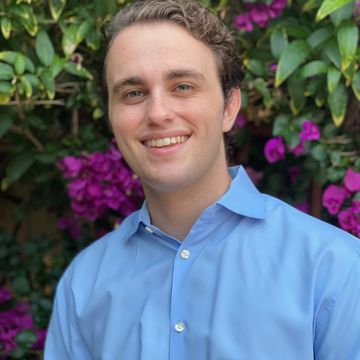Jonathan Morad Artal

I’m a rising senior at Stanford majoring in Biology and Political Science, interested in how memory spans generations and how policy can advance public health. Having grown up beside a younger brother with Down syndrome, I’m especially interested in the health, social, and educational challenges that disabled people face. I plan to attend law school while jointly studying public health, working to elevate disabled and disadvantaged groups domestically and in low-income areas abroad. Alongside that career, I hope to spend time writing: about disability, about my family, and about how traumas and hopes echo across generations. I’m particularly interested in sharing Jewish experiences from the Iranian Revolution, highlighting the generational stories of that community’s diaspora.
Through my essay, I hoped to capture how descendants serve as genealogical custodians. My father’s family lived through the Holocaust, while my mother’s family lived through the Iranian Revolution and its aftermath. These experiences—Europe and Tehran—entangle and persist through me. I use the piece not merely to describe a family’s history, but to frame myself as that history’s echo: my flesh and memory testify to their experiences.
The piece operates via two interwoven threads. In the first, I offer reflections—via prose, poetry, and sound—on my family’s history as I have experienced it. Yet in the second, I intersperse those reflections with narratives I write from family members’ perspectives. These narratives range from my grandfather's arrests to the day my mother fled Iran as a refugee. By sharing their stories—scattered episodes—in the first person, I assert our shared interiority: their voices resonate in mine.
I share these episodes in nonlinear fragments, rejecting that history represents a linear chronicle. As a child, I heard these stories as nonlinear episodes, and today, they converse in ways I couldn’t anticipate—across time and continents. Given that experience of memory, offering a date-by-date chronicle would strip memory of its power. So, I worked to frame memory as “Fragments and Threads”: spasmodic episodes and poems and images that erupt unbidden and weave to birth a tapestry.